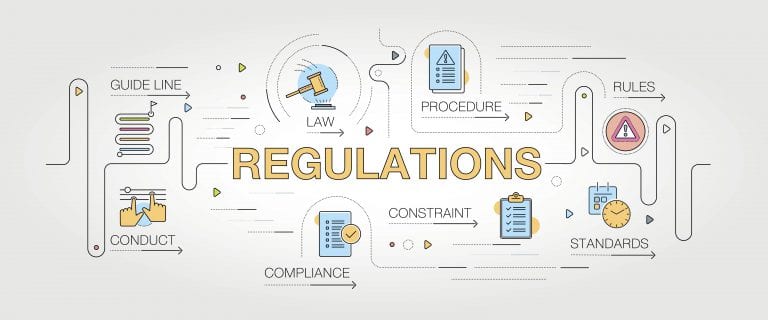By Angela Garfinkel, President, Quality Contact Solutions
If you missed the PACE TCPA Washington Summit in Washington DC, September 27-29, you missed the opportunity to hear from the best legal minds in the call center and outsourced telemarketing industry.
While the summit was focused on the fallout of the Federal Communications Commissions’ Telephone Consumer Protection Act (TCPA) Declaratory Ruling, attendees also learned about other risks that some outsourced telemarketing organizations and clients may not be aware of.
Here is a high level recap of the PACE TCPA Summit:
PACE TCPA Appeal
PACE General Counsel, Michele Shuster of Mac Murray, Petersen & Shuster LLP and Shay Dvoretzky of Jones Day (the law firm representing PACE and SiriusXM in the TCPA Appeal) provided an update on the case. It is expected that court will rule within 15 to 18 months, so a relatively short timeframe given the fact that the FCC is one of the parties.
TCPA Declaratory Ruling has FCC Broken along Party Lines
TCPA Declaratory Ruling dissenting FCC commissioner, Michael O’Rielly spoke to our group. He made it clear that the FCC is broken along party lines. He doesn’t expect the current commission to change or go in a different direction. The current FCC commission wants to expand its power even further.
Outsourced Telemarketing: Do you have Prior Express Written Consent?
If your organization has not identified its policy and procedures for capturing Prior Express Written Consent to call your customers on their cellular phone numbers, this should be your highest priority right now. The future of utilizing outsourced telemarketing effectively may hinge on your organization’s ability to capture a sizable number of opt-in’s. And remember to ensure that your policy, procedures and training also covers capturing and documenting revocation of consent.
Using non-ATDS Technology and Creating a Defendable Position against Potential TCPA Class- Action Lawsuits
One of the hottest topics at the TCPA Summit was the definition of a non-Automated Telephone Dialing System (non-ATDS), including how to select technology that will ensure a solid defendable position against potential TCPA class-action lawsuits. Per many respected attorneys on-hand at the Summit, the FCC left the definition wide open. This is good news and bad news. However, I think it is mostly bad news. Some courts will define more strictly and some less strictly. The bottom line is that each outsourced telemarketing organization and the clients that utilize them should carefully weigh the potential risk vs the reward of placing calls to cellular phone numbers without Prior Express Written Consent.
Outsourced Telemarketing: How do reassigned wireless numbers impact your organization?
One area of significant concern for the outsourced telemarketing industry and those who use the telephone as a means to contact both existing and prospective customers is the issue of reassigned cellular phone numbers. According to the FCC’s TCPA Declaratory Ruling, a company only gets “one call” to determine that the number was reassigned, even if the call wasn’t answered or even if the person doesn’t inform them that they are calling or texting the wrong party. At the present time, there is no way to identify potentially reassigned cellular phone numbers.
Outsourced Telemarketing Firms and Clients are Targets for TCPA Class Action Lawsuits
Vexatious litigators and professional plaintiffs are targeting outsourced telemarketing organizations and the clients that utilize outsourced telemarketing. The primary source of pain is TCPA class action lawsuits. If your organization hasn’t been hit with a potential class-action, consider yourself fortunate.
Avoid Potential Data Breaches and Become PCI Level 1 Certified
Outsourced telemarketing organizations are also potential targets for data breach (both of their own data, including payroll information, as well as their client data). Going through the process to become PCI Level 1 Certified is a good idea. This is one step to identify potential gaps in your network security and physical security.
Capturing Prior Express Written Consent
One panel discussion at the Summit was around text messages and the “terms and conditions” and how prior express written consent is captured and what is the consumer’s expectation and how easy is it to opt out. Also, the Lyft case and the First National Bank case was discussed. The attorneys on the panel said that the FCC went after both Lyft and First National Bank because in both cases, the organizations violated the TCPA by requiring the user to opt-in for marketing text messages in order to sign up for the service. The attorneys speaking at the Summit said that they expect the FCC to be aggressive in pursuing actions against companies that violate this aspect of the TCPA.
Use Caution: Robocall Automated Messages
Outsourced telemarketing organizations and the clients that hire them should be very careful if a call campaign includes a Robocall (automated message) element. Jessica Rich with the Federal Trade Commission spoke and told attendees that pursuing enforcement actions against companies that utilize robocalls is a high priority.
Lead Acquisition and Prior Express Written Consent
If your organization purchases leads from lead generators or internet leads, the expert advice is to ensure correct consent is captured and provided. Every lawyer that spoke at the TCPA Summit referenced that they were defending lawsuits that involved leads that were generated by 3rd parties. They emphasized making sure you can identify the original lead source and the meta data of the source to ensure the ability to demonstrate prior express written consent, or the established business relationship inquiry (whichever is required or applicable).
Avatar and Echo Technology
According to Christine Reilly with Manatt, Phelps & Phillips, the “avatar” technology (I refer to it as Echo), the FTC has stated that it is legal. The FCC has been silent on their position regarding the use of this technology and whether it would be considered a “robocall”. The TCPA Summit panel’s consensus is that it would be tricky and require a detailed legal analysis to provide more information to companies that are using this technology or planning to use this technology.
Non-ATDS Technology and Defending Potential TCPA Class Action Lawsuits
The TCPA Summit’s technology panel was anchored by three technology professionals, including Karl Koster, Chief IP Counsel for Noble Systems. Each of the speakers on the panel shared their views on potential non-ATDS technology and how to defend a potential TCPA class action lawsuit. At Quality Contact Solutions, we take a very conservative approach. For our outsourced telemarketing client programs, we utilize a 1980’s Nortel phone system which is an IC chip based system. Our goal is that if we need to defend a potential class action, the judge in the case would see that the phone system isn’t programmable and since the manufacturer is out of business it couldn’t be modified to have future capacity or capability.
Customer Engagement Compliance Professional (CECP)
Running parallel to the PACE TCPA Summit was the second class for Customer Engagement Compliance Professional (CECP). In addition to the 24 CECP graduates in early September, the 2nd class graduated 17 additional CECP individuals. That is a great start for a brand new program! Kudos to CompliancePoint and PACE for putting together this outstanding compliance professional certification program specific to the customer engagement industry. And I’m happy to share that our company has two CECP’s: Angela Garfinkel and Rich Hamilton.
You may not be aware, but Quality Contact Solutions provides both outsourced telemarketing as well as outbound telemarketing compliance consulting solutions. Give us a call to discuss how we can help you reach your sales goals without creating unnecessary risk for your organization. 866.963.2889 Or send me an email at angela@qualitycontactsolutions.com








